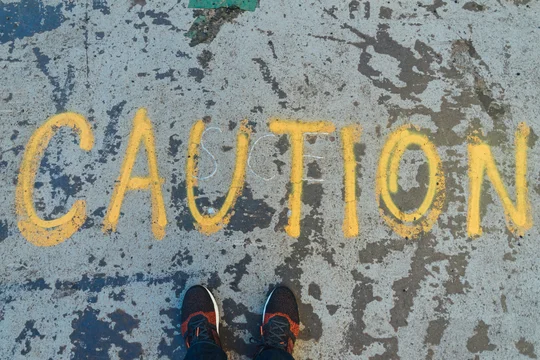
We're back! Just in time to be snowed in—the Court is closed today due to inclement weather.
While we were out last week, Chief Judge Connolly issued an interesting opinion on post-trial motions in Natera, Inc. v. CareDX, Inc., C.A. No. 20-38-CJB (D. Del.).
That case went to trial in January 2024, with plaintiff Natera winning a $96 million verdict on the first of two patents, but receiving a verdict of no infringement of the second patent. The Court's opinion addresses their motion for JMOL of infringement on the second patent.
Did a Poorly Phrased Question Doom JMOL of Infringement?
The arguments turned on a single claim limitation. The Court found that the defendant's expert had offered sufficient evidence that the limitation was absent. The plaintiff argued that the expert had admitted to the limitation's presence in the following exchange:
Q. And could you just read the first sentence to me, please.
A. 'AlloSure measures the amount of donor-derived cellfree DNA relative to the total amount of cell-free DNA in a plasma sample by sequencing 405 SNPs having an average minor allele frequency greater than 40 percent.'
Q. And you agree that that statement is accurate as far as you are concerned?
A. As far as I know.
The Court disagreed, and found that a jury could have interpreted that as confirming only what the document said, rather than how the process works:
[A] reasonable jury could have interpreted Dr. Van Ness' s answer to be "confirm[ing] that the examining lawyer read quotes from CareDx's AlloSure Test description correctly" rather than making a "smoking-gun admission" that AlloSure practices the sequencing-by-synthesis claim element.
With 20/20 hindsight, it might have been better to ask something like:
Q. And you agree that that statement accurately describes the process as far as you are concerned?
But did they do the wrong thing at trial? It's hard to say. It's a small enough change that it might not have impacted the answer. On the other hand, the more wiggle room you give the expert, the more likely they are to say "no" (or, worse, say "no" and explain why not in excruciating detail). It may be that, by asking it the way they did, the plaintiff aimed to call the jury's attention to it while having a better chance of getting the answer they wanted—which could still have had value if the verdict had come out the other way.
Plaintiff Failed to Preserve Its Infringement Argument in Its Rule 50(a) JMOL Motion at Trial
Plaintiff filed a detailed, 22-page-long Rule 50(a) motion, which argued that the defendant's non-infringement case failed in part because no reasonable jury could find that the accused product doesn't practice the claim, including the "measuring" element of the claim. See id., D.I. 451 at 4-5. But it didn't mention claim construction of that element. Id.
Later, in its Rule 50(b) motion after trial, it argued that the defendant's non-infringement position was "inconsistent with the plain meaning" of that term, which was never construed. Id., D.I. 490 at 20. The post-trial motion also pointed out that the plaintiff had raised this point at summary judgment. Id., n.5.
The Court held that the plaintiff had waived this argument by failing to preserve it in their Rule 50(a) motion at trial:
Natera briefly argues that CareDx "argued for non-infringement based purely on an unorthodox claim construction that it did not seek from the Court[.]" D.I. 490 at 6; see also D.I. 490 at 20 n.5. But Natera did not make this argument during its Rule 50 motion at trial, see D.I. 451, and therefore has waived the argument. See Kars 4 Kids Inc., 8 F.4th at 220 (" A post-trial Rule 50 motion can only be made on grounds specifically advanced in a motion for a directed verdict at the end of [the] plaintiffs case.") (quotation and citation omitted); see also Conoco, Inc. v. Energy & Env't Int'l, L.C., 460 F.3d 1349, 1359 (Fed. Cir. 2006) ("[L]itigants waive their right to present new claim construction disputes if they are raised for the first time after trial.") (citation omitted).
D.I. 553 at 9. This isn't nearly as bad of a waiver as some we've seen, but you can still add it to the pile of reasons that Rule 50(a) motions tend to keep trial attorneys up at night (both figuratively and literally). Be careful out there!
If you enjoyed this post, consider subscribing to receive free e-mail updates about new posts.




